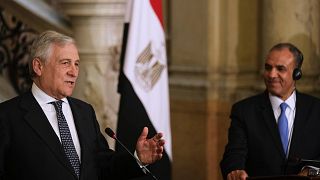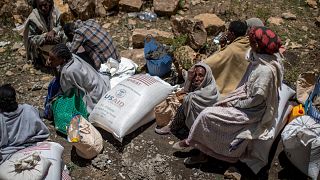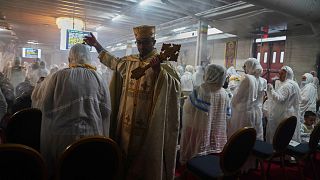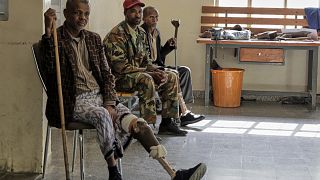Ethiopia
Egypt said on Monday that it had been informed by Ethiopia of the start of the second phase of filling a mega dam on the Nile, a move denounced by Cairo and likely to raise tensions ahead of a UN Security Council meeting on Thursday.
The Egyptian Minister of Irrigation, Abdel Atti, informed by Addis Ababa of the start of the second phase of filling, said "firmly reject (this) unilateral measure," according to a statement from his ministry released late Monday.
The start of this second phase of the filling of the dam "represents a violation of international laws and norms that regulate construction projects on shared basins of international rivers," he said.
The Grand Ethiopian Renaissance Dam (GERD), built by Ethiopia upstream of the Nile, has long been the subject of a dispute with Egypt and Sudan, which fear for their water resources.
The UN Security Council is due to meet on Thursday to discuss the matter at the request of Tunisia, a non-permanent member of the Council and representative of the Arab world, on behalf of Egypt and Sudan. Ethiopia is opposed to this meeting but is also expected to participate.
In recent weeks, Sudan and Egypt had sent letters to the UN requesting an emergency referral to the Security Council.
In his letter, the head of Egyptian diplomacy, Sameh Choukri, deplored the fact that the negotiations have been at an impasse since April and accused Ethiopia of having "adopted an intransigent line by which it has torpedoed the collective efforts to reach an agreement on the Grand Ethiopian Renaissance Dam.
Ethiopia's construction of the GERD up the Nile began in 2011. Downstream of the river, Egypt and Sudan are demanding an agreement with Addis Ababa on filling its reservoir.
Ethiopia, which said it had operated the first phase of filling in the summer of 2020, had recently announced that it would proceed with the second phase with or without an agreement. Ethiopia says the dam is vital to meet the energy needs of its 110 million people.
Sudan hopes the dam will regulate its annual flooding but fears adverse effects without an agreement. Egypt, which depends on the river for 97% of its water supply, sees it as a threat to its resources.
AFP












01:42
Cairo service honours Pope Francis' legacy
Go to video
Egypt FM Abdelatty: Egypt is making "continuous, genuine and non-stop efforts” for ceasefire in Gaza
Go to video
Egypt: Coptic Catholics mourn Pope Francis
Go to video
Egyptian-UK activist Alaa Abdel Fattah gets sick on hunger strike in prison
Go to video
Sudan: Rapid Support Forces attack in western Darfur kills at least 30, according to activist group
02:00
Two years of war in Sudan: international conference aims to bring relief to suffering population